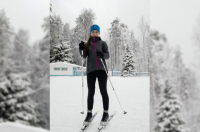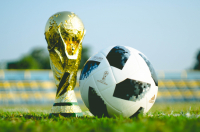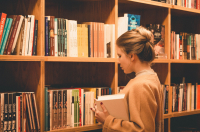How did you end up as one of the torchbearers?
There was a competition. Last winter, I found out that you could apply to take part in the marathon that precedes the 2019 Krasnoyarsk Universiade. The last field in the form I filled out was for a motivation letter on the topic “Why should I be the one to carry the torch?”
My main reason is that I come from Krasnoyarsk. By taking part in the run, even though I did it in St. Petersburg, I can make my own contribution to the history of my home region. Besides, I was excited to take part in an international event: the marathon started in Turin, Italy, and moved in our direction. I never participated in anything of that scale before.

So how does it feel to hold the Universiade torch?
It’s just a stick with a gas burner at the end. It’s made on special order, weighs about 2 kilograms and costs about 100,000 rubles. Hard to say if it looks the price. It’s white, with a logo of the Universiade and the words “Krasnoyarsk 2019” on it. Extremely minimalist.
Did you enjoy your role as a torchbearer?
It was all very well organized, so I don’t regret it in the slightest. There were another 39 runners there, including Olympic athletes, politicians, and other students from St. Petersburg. We each ran only a 100 meters, with a bus filled with cameras in front and police at the back and the sides.
My part of the route went past the St. Isaac’s Cathedral, and the energy there was overflowing. As soon as I got off the bus, people began to come up to me, asking me who I am and taking pictures. I took the torch from the hands of Dmitry Vasilyev, a two-time Olympic biathlon winner. Everyone around us, both volunteers and regular passers-by, were very excited.

After this I was picked up by the bus filled with the other torchbearers; we all went to the Lesgaft National State University of Physical Education, Sport and Health to meet the governor of St. Petersburg, Universiade officials, and famous athletes.
How do you feel about the stereotypical notion of scientists as this sort of lab hermits who never get out and are averse to sports and working out?
This is indeed a thing. It’s true, I do spend my days working at the lab, writing my thesis and going to classes. But in the evenings I work out, as it helps me relax. After an emotionally taxing week, a workout helps you release those emotions and start the weekend relaxed. As for sleep, I catch up on it on it on days off.
When I was a kid, I couldn’t understand why people are into sports. Then I began playing football, and in the first grade my parents signed me up for wushu classes. It’s a type of gymnastics, sort of like physical therapy, but also a kind of martial arts. It teaches people to understand and feel in tune with their body. It is why I came to love sports. In tenth grade, I followed a friend’s example and decided to take up kickboxing.

Did that result in any injuries?
It did, at first. But I didn’t give up, choosing to try and do better, instead. Sports helped me become disciplined, responsible and resilient. Those are good qualities in life. I had a very tight schedule in my last year of school when I had to juggle classes, training and preparing for exams. It was my dream to come to St. Petersburg to pursue a degree. I’m not a fan of Moscow, and St. Petersburg is the cultural capital and a very beautiful city, too.
Having lived four years in a dorm in the Petrogradskaya District, I’ve explored every hidden corner there. When I meet up with friends, they sometimes invite me to go to a bar with them; I come along, even though I don’t drink. Sometimes I’ll order myself a kvass or some tea and a lot of food. Healthy living is always good.

If you had to choose, would you pick education or sports?
Education, of course. Knowledge is more important. In the 21st century, we pay for information. Even if I give up sports, the positive qualities it gave me will remain. You just have to develop them first. As long as I’m a student, I’ll keep studying; but I’m not sure if I have it in me to get a PhD. How much can one learn, anyway? It’s time for me to find a job and make a career. I think I’ll leave boxing behind and start going to the gym in the evenings. It’ll be easy to get back in shape: it’s all muscle memory. It’s like with a foreign language: you quickly lose it when you don’t practice, but you re-learn it just as quickly.
I had an amazing experience studying abroad. In eighth grade, my parents sent me to London for a month with five of my classmates and a coordinator. We lived with a local family and attended classes at a private school. I lived in the family of an elderly Italian woman. In only a month, I began to understand everything people said there. You just need immersion.

Have you considered taking part in any of the university’s academic mobility programs?
I did. My application for an exchange in Prague was approved, but I declined.
Why?
I decided that I’d rather work and start my career. Besides, I was told that since I am in the last year of my Military Department studies, I could get in trouble on return.
Anyway, to me the biggest challenge was passing the selection. I spent a long time preparing for the test and interview in English, which I passed, and was invited by a foreign university. I’m satisfied because I still achieved my goal.
I really want to become fluent in English. I’ve loved languages since childhood and in my free time, I watch movies and TV shows in English, even study online. Learning languages improves memory. And self-improvement is always cool.




